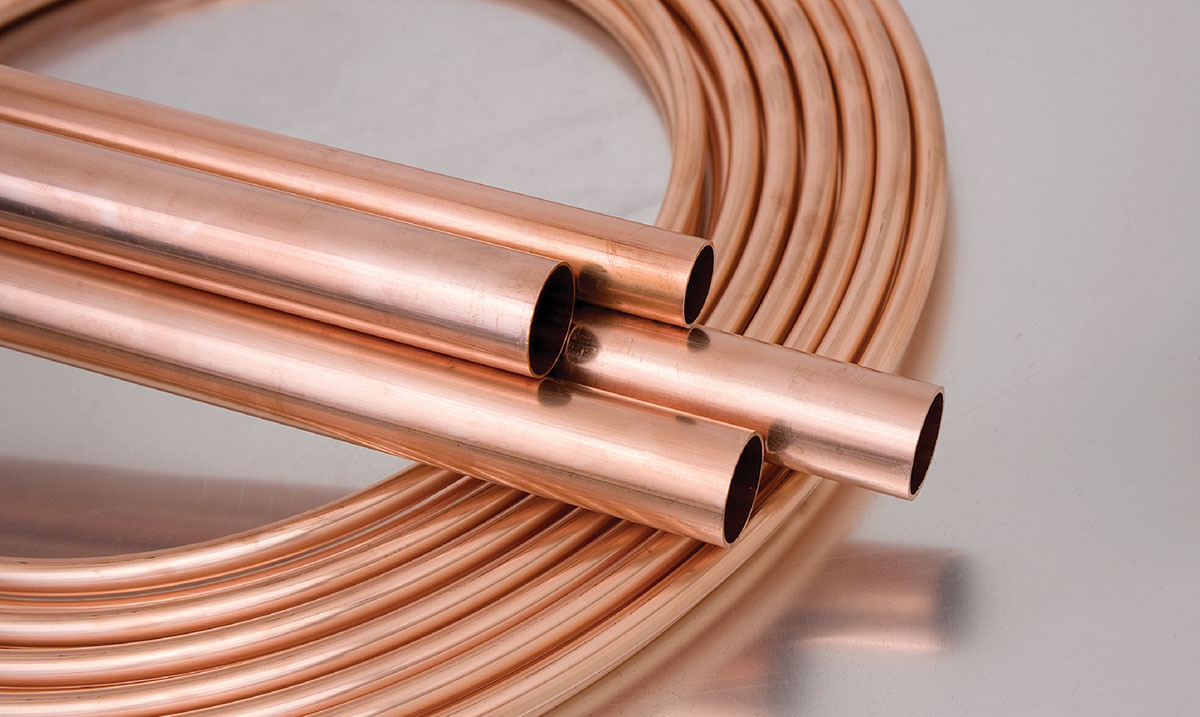Enhancing Your Cooking Area with Premium Copper Products: Tips and Finest Practices
Enhancing Your Cooking Area with Premium Copper Products: Tips and Finest Practices
Blog Article
Exactly How Copper Products Add To Sustainable Practices in Numerous Sectors
Copper items are progressively recognized for their significant payments to lasting practices throughout several industries, driven by their integral properties such as recyclability, effectiveness, and sturdiness. In sustainable energy systems, for instance, copper boosts the functionality of solar and wind innovations, while its application in construction lessens waste through long life. Additionally, the material's antimicrobial attributes supply promising advantages in medical care setups. As industries look for to embrace more sustainable techniques, the function of copper might show pivotal in accomplishing ecological goals. What ramifications might this have for future innovations in sustainability?
Copper in Renewable Energy
Copper plays an essential function in the development of sustainable power technologies, working as a crucial conductor in different applications. Its phenomenal electric conductivity and resistance to corrosion make it a suitable material for electric wiring, which is vital in solar panels, wind generators, and power storage systems. In solar photovoltaic systems, copper is used in the affiliations and wiring, making it possible for effective power conversion from sunshine to electrical energy.
In wind energy, copper is integral to the generators and transformers that transform kinetic power right into electrical energy, making sure ideal efficiency and integrity. The need for electric cars (EVs) is increasing, with copper being a key element in batteries, motors, and charging infrastructure. The change to EVs substantially improves the need for copper, as these vehicles generally use 4 times a lot more copper than standard internal combustion engine lorries.
As the world seeks to reduce environment change and shift to lasting power sources, copper's duty comes to be progressively vital. The material not only enhances the effectiveness and toughness of sustainable power systems yet additionally sustains the wider goal of minimizing greenhouse gas discharges and promoting a lasting future.
Eco-Friendly Construction Materials
Recently, there has been a remarkable shift towards the fostering of green building materials in action to expanding ecological problems. This change is motivated by the demand for lasting choices that minimize eco-friendly impacts while maintaining structural integrity and visual appeal.
Copper, known for its resilience and recyclability, has actually emerged as a key gamer in this industry. It can be made use of in roof, plumbing, and electrical systems, adding to energy effectiveness and reducing waste. Copper's longevity suggests less replacements in time, more enhancing its sustainability account.
Additionally, materials such as bamboo, redeemed timber, and reused steel are acquiring popularity. These choices not only offer lowered environmental influence but additionally advertise resource preservation. As building codes progressively stress sustainability, designers and builders are integrating these materials right into their tasks, cultivating technology in layout.
The boosting adoption of green building and construction products reflects a more comprehensive dedication to sustainability in the constructed environment. By prioritizing these materials, the building market can considerably minimize its carbon impact, straighten with governing standards, and support a healthier community for future generations. This trend marks a crucial action in the direction of a more sustainable future in building.
Copper's Role in Healthcare
Current research studies have highlighted the significant role of copper in healthcare setups, particularly as a result of its antimicrobial homes. Copper surfaces have been shown to reduce the existence of pathogens, including infections and germs, by approximately 99.9% within a brief duration. This exceptional effectiveness makes copper a very useful product for high-touch surfaces in healthcare facilities, such as doorknobs, bed rails, and IV posts, site here thereby adding to boosted infection control measures.
In enhancement to its direct antimicrobial effects, copper likewise plays a role in the wider context of health center sustainability (Copper Products). By including copper right into medical tools and furnishings, healthcare facilities can lower the occurrence of healthcare-associated infections (HAIs), which not just enhances patient outcomes yet additionally lowers the expenses connected with extensive health center keeps and extra treatments
Moreover, copper's toughness and recyclability line up with lasting methods, permitting liable resource administration. As healthcare systems significantly focus on both patient safety and security and environmental stewardship, the combination of copper items is ending up being much more prevalent. This double advantage underscores copper's important payment to a much healthier, safer, and a lot more lasting health care setting.
Sustainability in Transport

Furthermore, copper's toughness and corrosion resistance add to the long life of transport infrastructure (Copper Products). In rail systems, as an example, copper parts enhance the integrity and efficiency of signaling and power systems, important for decreasing delays and energy consumption. In addition, copper's duty in eco-friendly energy systems, such as solar and wind, sustains sustainable transport remedies by supplying clean energy for electrical transit alternatives
Investments in copper innovation not only foster sustainability yet also stimulate you could try here financial growth and job development in eco-friendly fields. As sectors aim to satisfy rigorous environmental guidelines, the application of copper products in transportation becomes a crucial strategy in achieving sustainability goals and promoting a cleaner, more effective future.
Copper and Circular Economic Situation
As the globe progressively accepts sustainability, the function of copper in the round economy ends up being ever a lot more substantial. Copper's intrinsic homes-- such as its conductivity, recyclability, and sturdiness-- placement it as a key material in a resource-efficient economic climate. The round economic climate intends to minimize waste and make best use of resource usage through recycling and reusing materials, and copper excels in this regard.
The steel can be reused indefinitely without loss of quality, making it a suitable prospect for sustainable techniques throughout different sectors, including building and construction, electronic devices, and renewable energy. By reprocessing and recouping copper from end-of-life products, markets can substantially minimize the demand for virgin products, thereby lowering environmental effects connected with mining and handling.
In addition, the integration of copper into circular economic situation frameworks not just conserves resources yet likewise cultivates technology. Services that focus on copper recycling add to a more lasting supply chain, boosting their competition while straightening with regulative needs and customer choices for eco liable items.
Conclusion
To conclude, copper items dramatically contribute to sustainable techniques across several sectors. Their essential function in improving eco-friendly power modern technologies, promoting environment-friendly building materials, sustaining infection control in health care, facilitating sustainable transportation, and personifying the concepts of a round economic climate underscores the flexibility and importance of copper. By integrating copper right into numerous applications, industries can achieve higher performance, minimize environmental impact, and line up with global sustainability goals, inevitably promoting an extra sustainable future.

Copper's outstanding conductivity makes it a recommended material in electric automobile (EV) systems, boosting power effectiveness and efficiency. navigate to this website In addition, copper's function in sustainable energy systems, such as solar and wind, sustains lasting transport services by supplying tidy energy for electric transit choices.
Their important duty in boosting renewable power innovations, advertising environmentally friendly construction materials, supporting infection control in healthcare, promoting sustainable transportation, and embodying the concepts of a circular economy underscores the convenience and importance of copper.
Report this page